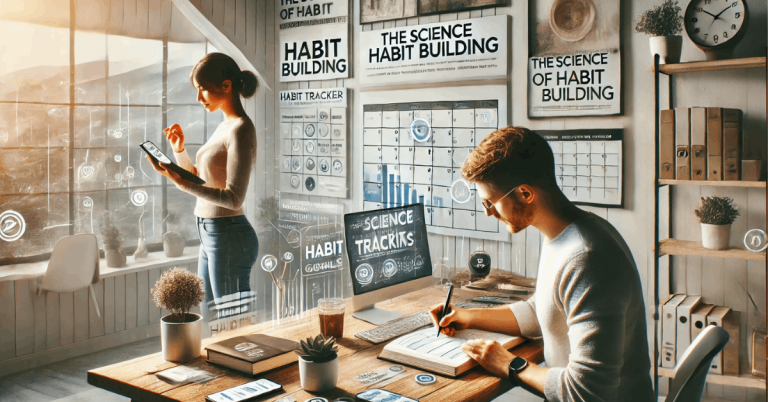The biggest productivity killers drain time and energy, making it hard to stay efficient. Distractions, poor time management, and lack of clear goals slow progress.
This article breaks down the common obstacles that hurt productivity and offers clear solutions. Apply these strategies to regain focus and maximize results.
What Productivity Means in Work and Life
Being productive means using time and effort wisely to complete tasks and reach goals. At work, it helps you stay focused and finish tasks on time.
In your personal life, it allows you to manage responsibilities while making room for hobbies and rest. Without it, stress and delays build up quickly.
Good habits and smart planning keep things running smoothly. A clear plan and the right mindset make a big difference.
Biggest Reasons for Wasted Time
Small habits and distractions often slow things down. Understanding these common issues helps you take back control.
Why do Distractions Stop Progress?
Constant interruptions make it hard to concentrate and finish tasks. Social media, emails, and random phone calls pull attention away from work.
Loud environments and unexpected conversations also break focus. Every small distraction adds up, wasting valuable minutes.
A structured routine and clear boundaries reduce these disruptions. Controlling your surroundings helps you stay on track.
How Poor Planning Ruins Efficiency?
Without a clear plan, tasks pile up and cause stress. Skipping schedules and failing to set priorities lead to wasted hours.
Working without direction makes even simple jobs take longer. A to-do list or a planned schedule removes confusion.
Organizing tasks by urgency helps get more done in less time. A structured day prevents unnecessary delays.
Why Multitasking Lowers Efficiency?
Trying to do multiple tasks at once feels productive, but it actually slows things down. Switching between tasks makes it harder to focus and complete work on time.
Mistakes increase when attention is divided. The brain works better when focusing on one task at a time.
Completing one job before starting another leads to higher-quality results. A clear work structure prevents the urge to multitask.
How Unclear Goals Lead to Delays?
Without clear goals, it’s easy to feel lost and unsure of what to do next. Vague plans make tasks feel overwhelming and hard to start.
Measurable targets give direction and help track progress. Setting specific deadlines keeps work on track.
Reviewing goals often makes it easier to stay motivated. Clear objectives create a sense of purpose and reduce wasted effort.
The Hidden Impact of Poor Health
A tired mind and body struggle to stay focused and complete tasks efficiently. Poor sleep, bad diet, and lack of exercise reduce energy levels.
High stress slows down thinking and weakens decision-making. Regular breaks and a balanced lifestyle keep the brain sharp.
Small habits like drinking water and stretching can improve performance. Taking care of health leads to better work and faster results.
Simple Ways to Work Better
Making small changes can help you work faster and stay more focused. Using the right strategies removes common obstacles and makes tasks easier to manage.
Ways to Reduce Distractions
Interruptions slow down progress and make tasks take longer. A few small adjustments can create a calm and more focused work environment.
- Turn off notifications – Use tools like Freedom or Cold Turkey to block distractions.
- Set work boundaries – Let others know when you need quiet time.
- Use noise-canceling headphones – Listen to instrumental music or white noise to improve focus.
- Create a clutter-free space – A clean desk helps reduce mental distractions.
- Schedule deep work sessions – Use time blocks for tasks that need full attention.
- Take control of emails – Limit email checks to specific times with tools like Boomerang.
How to Manage Time Better?
Planning ahead keeps tasks organized and prevents wasted time. The Pomodoro Technique, which includes 25-minute focused work sessions, helps improve focus.
Using digital planners like Trello or Todoist makes it easier to track progress. A daily schedule with time blocks removes confusion about what to do next.
Prioritizing tasks using the Eisenhower Matrix helps decide what matters most. Reviewing and adjusting plans often keeps work on track.
Why Single-Tasking Works Better?
Focusing on one task at a time improves speed and quality. Jumping between jobs creates confusion and slows down progress.
Single-tasking helps the brain process information more clearly. Using tools like Toggl Track can help manage time effectively.
Setting a clear priority for each task removes stress. A structured workflow leads to faster and better results.
How Clear Goals Keep You on Track?
Without a goal, work can feel aimless and unorganized. SMART goals (Specific, Measurable, Achievable, Relevant, Time-bound) give clear direction.
Using tools like Asana or ClickUp helps track progress. Breaking big tasks into smaller steps makes them manageable.
Regular goal reviews keep work aligned with long-term plans. Clear goals create motivation and a sense of purpose.
Why Health Affects Work Performance
Poor health makes it harder to stay alert and focused. Lack of sleep, bad diet, and no exercise reduce energy levels.
Taking short breaks improves mental clarity and prevents burnout. Apps like MyFitnessPal help track nutrition and fitness.
A daily routine with balanced meals and movement keeps energy high. Good health supports better focus, decision-making, and efficiency.
Simple Ways to Apply These Strategies
Small actions can make a big difference in staying focused and getting things done. Try these practical tips to build better habits and reduce wasted time.
- Start the day with a plan – Use tools like Todoist to organize tasks.
- Set time limits for tasks – Apps like Pomodone help track work sessions.
- Minimize distractions – Silence notifications and use focus modes on your phone.
- Take breaks wisely – Short walks or stretching improve mental clarity.
- Use digital tools to stay on track – Platforms like Notion help manage notes and goals.
- Review progress daily – Adjust plans based on what worked best.
Final Thoughts on Staying Efficient
The biggest challenges in getting work done are distractions, poor planning, and unclear goals. Simple changes like focusing on one task at a time and setting clear priorities improve efficiency.
A structured routine, good health, and time management create long-term success. Overcoming productivity killers leads to better results and a more balanced day.









